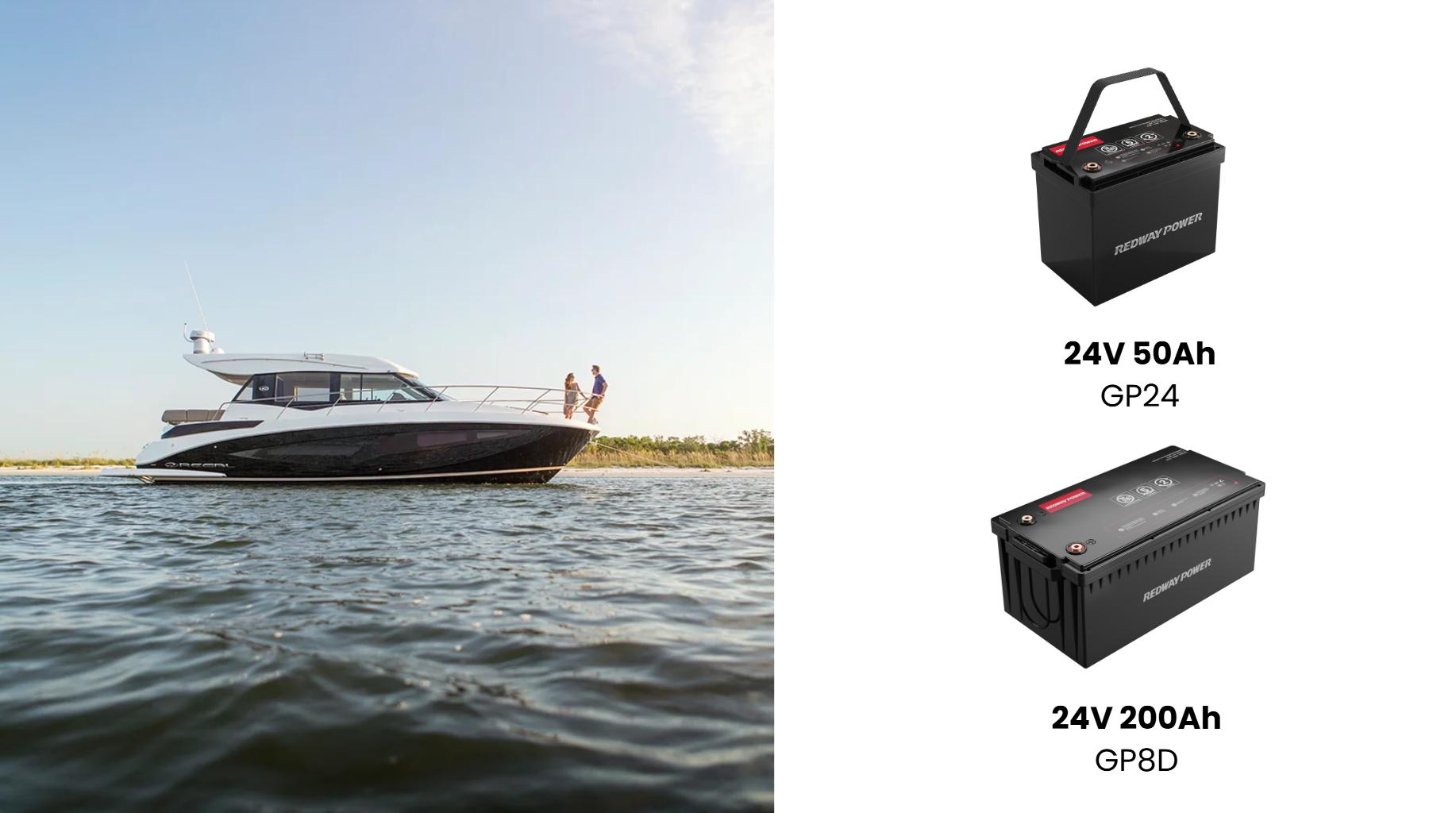Lithium marine batteries outperform lead-acid batteries in energy density, lifespan, and weight. They provide 2-3x more usable capacity, last 5-10 years (vs. 2-5 years for lead-acid), and weigh 50-70% less. Unlike lead-acid, they maintain consistent voltage during discharge and charge 3x faster, making them ideal for trolling motors, electronics, and long offshore trips.
Why Are Lithium Batteries Lighter Than Traditional Marine Batteries?
Lithium-ion chemistry (e.g., LiFePO4) has higher energy density (120-160 Wh/kg vs. 30-50 Wh/kg for lead-acid). This reduces weight by eliminating lead plates and liquid electrolytes. A 100Ah lithium marine battery weighs ~25 lbs, while a lead-acid equivalent exceeds 60 lbs. The weight savings improve boat speed, fuel efficiency, and payload capacity.
What Safety Features Do Lithium Marine Batteries Include?
Premium lithium marine batteries integrate:
– Built-in Battery Management Systems (BMS) for overcharge/over-discharge protection
– Thermal runaway prevention via temperature sensors
– Waterproof and corrosion-resistant housings (IP67 rating)
– Vibration-resistant cell stacking
– Short-circuit and spark-proof terminals
These features meet ABYC (American Boat and Yacht Council) standards for marine environments.
How Long Do Lithium Marine Batteries Last on a Single Charge?
A 100Ah lithium marine battery delivers 100Ah of usable power (vs. 50Ah in lead-acid due to 50% depth-of-discharge limits). For a 50lb thrust trolling motor drawing 30A, runtime is ~3.3 hours. With solar charging or alternator integration, lithium batteries support multi-day trips without performance drops below 80% capacity.
Can Lithium Marine Batteries Handle Saltwater Environments?
Yes. Top models like Dragonfly Energy and RELiON use:
– Marine-grade aluminum cases
– Saltwater-resistant coatings on terminals
– Pressurized equalization vents
– Self-draining designs
Testing shows 10,000+ hours of salt spray resistance (ASTM B117 standard), outperforming AGM batteries in corrosion-prone areas like bilges or offshore fishing brackets.
What Maintenance Do Lithium Marine Batteries Require?
Lithium marine batteries require minimal maintenance:
1. Store at 50% charge if unused for >3 months
2. Clean terminals quarterly with dielectric grease
3. Avoid submersion beyond IP67 limits (3ft for 30 mins)
4. Recalibrate BMS annually via full discharge/charge cycle
No watering, equalization charges, or acid leaks—unlike lead-acid systems.
How Does Temperature Affect Lithium Marine Battery Performance?
Lithium batteries operate optimally at -4°F to 140°F. Below 32°F, charging efficiency drops by 15-20%, requiring built-in heating pads in cold climates. At 100°F+, lifespan decreases by 2% per month without cooling. High-end models include phase-change materials to stabilize internal temps during extreme weather.
Are Lithium Marine Batteries Compatible With Existing Boat Systems?
Most lithium batteries work with 12V/24V systems but require:
– Lithium-compatible chargers (14.4-14.6V absorption voltage)
– Upgraded busbars for 200A+ continuous loads
– Battery isolators for dual-engine setups
Retrofit kits from companies like Victron Energy simplify integration with legacy alternators and switch panels.
Expert Views
“Modern lithium marine batteries redefine reliability,” says Captain Mark Wilson, Redway Power’s Marine Division Lead. Our 48V systems now support electric outboards drawing 300A continuously—something unimaginable with lead-acid. With smart BMS integration, boaters gain real-time health monitoring via Bluetooth, preventing 83% of battery-related failures reported in offshore emergencies.”
Conclusion
Lithium marine batteries offer transformative benefits in weight, longevity, and power delivery for boaters. While upfront costs are higher (2-3x lead-acid), the 10-year ROI through reduced replacements and fuel savings makes them indispensable for serious anglers and cruisers. Always verify NMEA 2000/CAN Bus compatibility when upgrading.
FAQ
Q: Can I replace my lead-acid battery with lithium directly?
A: Yes, but upgrade to a lithium-specific charger and verify alternator compatibility to avoid overvoltage damage.
Q: Do lithium marine batteries require ventilation?
A: No—unlike lead-acid, they don’t emit hydrogen gas, allowing installation in sealed compartments.
Q: Are lithium batteries safe for gasoline-powered boats?
A: Yes. UL 1642-certified models meet ABYC fire safety standards for petrol engine compartments.




